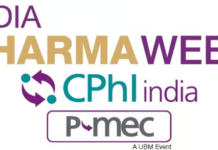New Delhi, July 04, 2015
Biogen Inc. will broaden its gene therapy pipeline by signing a partnership with Applied Genetic Technologies Corp. worth about $1 billion to develop ophthalmology treatments.
AGTC will get an upfront payment of $124 million, which includes a $30 million equity investment, according to a statement on Thursday. Biogen will also make additional payments for development and sales milestones that could make the agreement worth more than $1 billion, the companies said.
AGTC, based in Alachua, Florida, is one of several gene therapy companies targeting genetic disorders in the eye. Biogen will license to AGTC’s two leading candidates, which target rare inherited eye disorders that can lead to blindness, caused by mutations in single genes.
 “This will be a source of innovation for us, for sure,” said Olivier Danos, senior vice president of cell and gene therapy at Biogen. “We’re very interested in gene therapy in the long term.”
“This will be a source of innovation for us, for sure,” said Olivier Danos, senior vice president of cell and gene therapy at Biogen. “We’re very interested in gene therapy in the long term.”
The Cambridge, Massachusetts-based biotechnology firm has been building a gene therapy program through a research deal with the San Raffaele-Telethon Institute for Gene Therapy to develop treatments for the blood disorders hemophilia A and B, and a partnership with Sangamo BioSciences Inc. for sickle cell disease and the blood disorder beta thalassemia.
While gene therapy has the promise to cure genetic disorders with a single procedure, it’s far from proven. Shares of Avalanche Biotechnologies Inc. plunged when the company said on June 15 that patients with an age-related chronic eye disease still needed injections from another drug after being treated with its gene therapy.
Disappointments
These disappointments are “absolutely normal kinds of bumps in the road that you find in development,” said Danos.
Opthalmology is a new area for Biogen, which is best known for multiple sclerosis drugs. One of AGTC’s treatments, for a disorder called X-linked retinoschisis, has started its first human trials. Another, for X-linked retinitis pigmentosa, is still in pre-human testing.
“We believe the technology is mature enough to be used as a drug,” Danos said.
Better expertise in ophthalmology could also be a useful window to see what’s happening with neurodegenerative diseases, a key area for Biogen.
For example, Biogen ran a trial for a new multiple sclerosis drug, first testing its effects on optic neuritis, inflammation of the optic nerve that is often seen in multiple sclerosis patients. Positive data in that trial was seen as a sign that the medicine could work for MS.
“There are a number of things you can look at in the eye as a readout for what is happening in the brain,” Danos said. Bloomberg























